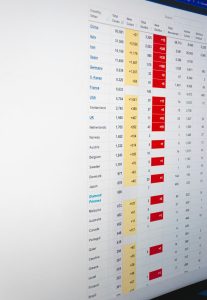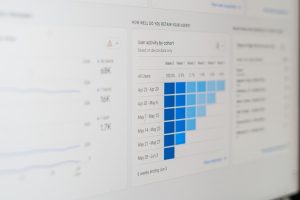
In today’s fast-paced business environment, where customer relationships are at the core of success, small businesses are constantly seeking ways to enhance their operations and build stronger connections with their clientele. This is where Customer Relationship Management (CRM) systems come into play. Once predominantly utilized by larger enterprises, CRMs have now become a valuable asset for small businesses as well. In this article, we will delve into the reasons why small businesses need a CRM and how this tool can be a game-changer for their growth and sustainability.

Understanding CRM for Small Businesses
A Customer Relationship Management (CRM) system is a software solution designed to streamline and manage interactions with customers, leads, and prospects. It serves as a centralized hub where businesses can store, organize, and analyze customer data, track communication, manage sales, and automate various processes. For small businesses, implementing a CRM can yield a wide array of benefits that contribute to their overall success.
Benefits of CRM for Small Businesses
1. Efficient Customer Data Management
Small businesses interact with a multitude of customers, each with their own preferences, purchase history, and communication records. A CRM system allows you to centralize this information, providing a comprehensive view of each customer. This leads to more personalized interactions and a better understanding of customer needs.
2. Enhanced Customer Engagement
Engaging with customers in a meaningful and timely manner is crucial for small businesses. CRMs enable you to schedule follow-up calls, send targeted emails, and track customer interactions, ensuring that no opportunity for engagement is missed.
3. Lead Management and Conversion
CRMs help small businesses manage leads effectively by categorizing them, tracking their progress, and assigning follow-up tasks. This streamlined process increases the chances of converting leads into paying customers.
4. Sales and Pipeline Tracking
Small businesses can benefit from the sales tracking features of a CRM. By visualizing your sales pipeline, you can identify bottlenecks, forecast revenue, and allocate resources more effectively.
5. Automation and Workflow Streamlining
Automation features within a CRM can significantly reduce manual tasks. From sending out personalized emails to setting reminders for follow-ups, automation frees up time for you to focus on strategic business decisions.
6. Customer Insights and Analytics
CRMs provide valuable insights into customer behavior, preferences, and purchasing patterns. This data helps small businesses tailor their marketing strategies and offerings to align with customer needs.
7. Improved Collaboration
Small businesses with multiple team members benefit from the collaborative capabilities of a CRM. Team members can access customer information, track progress, and coordinate efforts seamlessly.
8. Scalability and Growth Support
As small businesses grow, managing customer relationships becomes more complex. CRMs are designed to scale your business, accommodating increasing customer data and interactions.

Overcoming Challenges with CRM Implementation
While the advantages of using a CRM for small businesses are evident, some challenges may arise during the implementation process. Here’s how to navigate them effectively:
1. Cost Concerns
Small businesses often operate on tighter budgets. However, many CRM solutions offer tiered pricing plans, allowing you to choose a plan that aligns with your budget and needs.
2. User Adoption
Introducing a new tool to your team may encounter resistance. To address this, provide proper training and highlight the benefits of using the CRM for improved efficiency and customer relationships.
3. Data Migration and Integration
Transferring existing customer data to the CRM can be a hurdle. Choose a CRM that offers easy data migration and integration with existing tools to ensure a smooth transition.
4. Customization
Each business has unique requirements. Select a CRM that allows customization to tailor the software to your specific needs.
Selecting the Right CRM for Your Small Business
Choosing the right CRM for your small business is a critical decision. Consider the following factors:
1. Features Needed
Assess your business needs and identify the essential features you require in a CRM. This might include contact management, lead tracking, email marketing, and reporting.
2. Ease of Use
Opt for a CRM with a user-friendly interface that your team can quickly adapt to.
3. Scalability
Ensure the CRM can accommodate your business’s growth without compromising on performance.
4. Integration
Look for a CRM that integrates well with your existing tools, such as email marketing platforms or e-commerce systems.
5. Support and Training
Choose a CRM provider that offers reliable customer support and training resources to help you get the most out of the system.
In a competitive landscape where customer loyalty and effective communication are paramount, small businesses cannot afford to overlook the benefits of CRM systems. The advantages of streamlined customer management, enhanced engagement, and data-driven decision-making make CRMs indispensable tools for small businesses aiming for sustainable growth and success. By choosing the right CRM solution and implementing it effectively, small businesses can build stronger customer relationships, optimize their operations, and position themselves as leaders in their respective industries.








